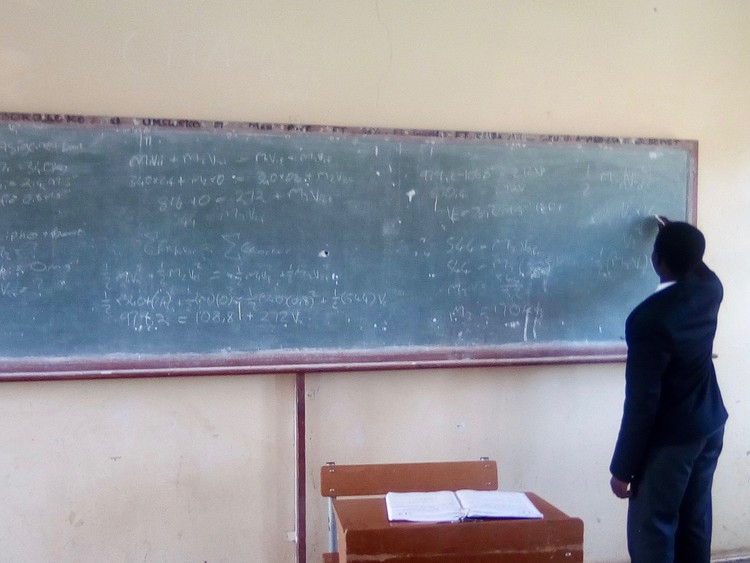Experts lukewarm on exams in isiXhosa and Sesotho
Support for policy but concerns with implementation
Students from selected schools in the Eastern Cape will be able to write their 2020 matric exams in isiXhosa and Sesotho. This includes maths and science. This is according to an announcement last December by the Eastern Cape Education MEC, Fundile Gade.
This is the first time in South Africa that matric students will be able to write their exams in languages other than Afrikaans and English.
The department has been running home language learning programmes from lower grades since 2012, with the goal of being able to write matric exams in isiXhosa, Sotho and other indigenous languages.
The announcement was met with largely positive reactions, with some celebrating it as a step towards “decolonising” basic education. However, there are concerns with the lack of multilingual materials.
Nic Spaull, education researcher from Stellenbosch University, labelled the move “a very positive development, not only to decolonise the curriculum, but to support teaching and learning”.
Spaull highlighted that “children learn best when they learn in a language they speak and understand”.
However he said that he had “reservations about the implementation of the policy” rather than the intent. He questioned whether “the materials (textbooks, previous exam papers etc) exist in these languages” and whether “the quality of translation and marking” is ready for Grade 12 level.
Xolisa Guzula is an education researcher at UCT who works on developing isiXhosa reading and teaching materials. Guzulu said that this was a positive move by the department — she supports bilingual education. But she stressed that examiners would need to take into account the variety of isiXhosa dialects.
“[The department] will need to take into account the isiXhosa varieties [such as] the isiHlubi, isiBhaca, isiBomvana, isiMpondo and urban varieties that the learners use. Standard isiXhosa also has the potential to fail those children whose dialects were never included in the standardisation of isiXhosa,” said Guzula.
She also expressed concern at the fact that most universities “are not yet offering bilingual degrees” so isiXhosa matric students could be put at a disadvantage at university.
Equal Education (EE) researcher Marc Jacobs says that the organisation “supports the use of mother tongue instruction in schools”. He said “English has been a barrier for many black learners understanding the curriculum”.
But, he stressed that if this program was to be implemented successfully there must be textbooks for all grades in isiXhosa and Sesotho, and teachers must be “trained and qualified to teach various subjects in isiXhosa and Sotho”.
“The decolonisation of our curriculum is the shift we need in our education system, but the Eastern Cape Department of Education must be cognisant of the amount of work, time and investment this will take,” said Jacobs.
GroundUp contacted the Eastern Cape Department of Education several times to provide comment on the questions raised, but had not received a reply by the time of publication.
Support independent journalism
Donate using Payfast

Don't miss out on the latest news
We respect your privacy, and promise we won't spam you.
© 2020 GroundUp.
This article is licensed under a Creative Commons Attribution-NoDerivatives 4.0 International License.
You may republish this article, so long as you credit the authors and GroundUp, and do not change the text. Please include a link back to the original article.

